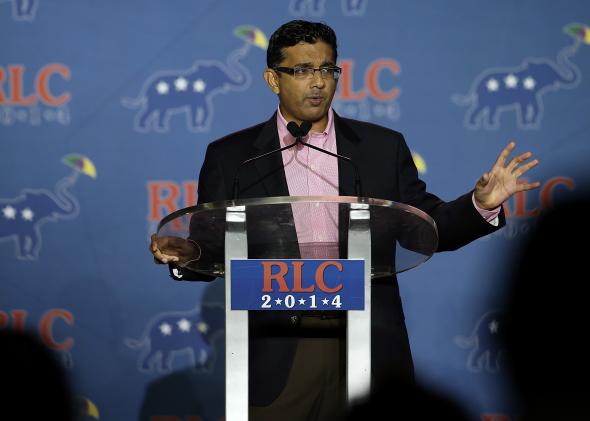Libertarians File Ethics Complaints Against Senators Who Asked the IRS to Look Into Campaign Spending

Photo by Justin Sullivan/Getty Images
My latest story, reported at the Republican Leadership Conference in New Orleans, looks at how the plight of wealthy donors has become a populist cause. A proposed amendment to allow more limits on campaign donations is dubbed the "new Alien and Sedition Acts." A senator (Ted Cruz, if that's not spoiling anything) is accusing the White House of opening a dragnet on all of its opponents, from the Kochs down to Dinesh D'Souza.
The campaign to browbeat liberals out of their campaign finance reform push continues today, as the Center for Competitive Politics, run by a former FEC commissioner (Bradley Smith, who won the $250,000 conservative Bradley Prize for his work) and a former Club for Growth leader (David Keating), files an ethics complaint asking whether Democratic senators violated the rights of citizens. How? By sending letters to the IRS (which were public at the time) asking whether the surge of campaign spending by "educational," disclosure-limiting groups was legal.
The Senators’ pressure on the IRS may have yielded visible results in 2011. On May 12, 2011, The New York Times reported that the IRS had sent letters to five donors to Section 501(c)(4) organizations “informing [the donors] that their contributions may be subject to gift taxes depending on whether the donations exceeded limits under the tax laws.”
This was a shocking development within the world of tax attorneys and nonprofit organizations. As the New York Times explained, “[t]he timing of the agency’s moves, as the 2012 election cycle gets under way, is prompting some tax law and campaign finance experts to question whether the I.R.S. could be sending a signal in an effort to curtail big donations.”
The motivation behind the IRS’s action was obvious to all—to chill donors to the conservative nonprofit organizations that had become useful political enemies for the Democratic Party. As a former Director of the IRS’s Exempt Organizations Division stated, “The lack of clarity and the potential for not-insignificant taxation on these gifts will cause many of the biggest donors to think twice.”
This has been the theme for a while, crafted most expertly and consistently by WSJ columnist Kim Strassel. (Like Smith, she's about to be awarded a Bradley Prize.) The IRS's slow-walking of some conservative groups' applications, which was controversial, is being used to stoke outrage over any questions of the tax status of big-money groups like American Crossroads GPS.
